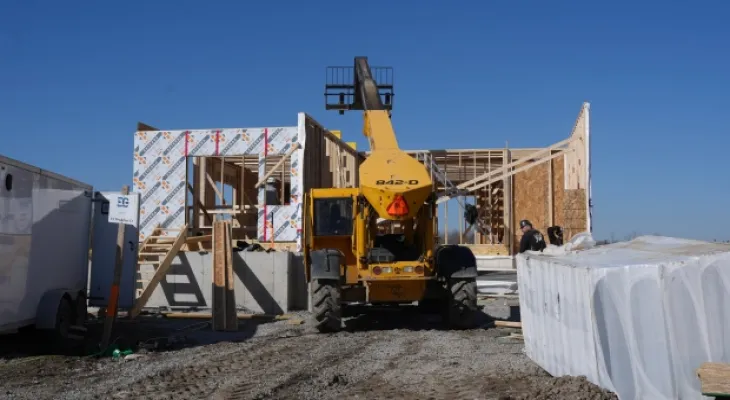Search here
Newspaper
Search here

Arab Canada News
News

Published: April 16, 2024
Canada Mortgage and Housing Corporation confirmed that the annual pace of housing starts in March decreased by seven percent compared to February.
The National Housing Agency stated that the total annual rate and the seasonally adjusted rate of housing starts was 242,195 units in March compared to 260,047 in February.
When looking at the year-over-year numbers, actual housing starts in March were up ten percent in Toronto and up fifteen percent in Vancouver due to the increase in multi-unit starts.
Actual starts in Montreal decreased by one percent, impacted by a decline in multi-unit starts.
The annual rate of rural starts was estimated at 21,452 units.
Richie Sundar, an economist at TD, said that housing starts continue to trend at a "strong pace," even with the monthly decline in March, supported by high prices and strong pre-construction sales in the past.
However, he warned of the potential for further declines in the number of starts in the coming months.
He stated in a note, "While governments are actively seeking ways to boost supply, we believe that housing construction is likely to decline further this year, against the backdrop of recent weakness in pre-sale activity."
"Furthermore, industry analysis indicates that the financing for rental units designated for this purpose that are currently under construction was secured when borrowing conditions were more favorable. As they turn stricter, this sector of the market could be impacted."
Starts can fluctuate significantly from month to month as the launch of larger multi-unit development projects can skew the numbers, and adjusted starts in March rose by twenty-seven percent in Vancouver, driven by an increase in multi-unit starts, while Toronto and Montreal decreased by twenty-six percent and five percent respectively, due to the drop in multi-unit starts.
To mitigate these fluctuations and provide a clearer picture of the upcoming housing supply trend, CMHC also announces a six-month moving average for the adjusted rate.
In March, the index showed it started at 243,957, down 1.6 percent from 247,971 in February.
Kari Norman, an economist at Desjardins, said in a note, "The slight decline in multi-unit housing in March is likely to reflect the month-to-month volatility of these large projects."
"Looking ahead, the gradual retreat of interest rate hikes expected to start in June will bring cautious optimism regarding housing construction starts. However, this optimism is tempered by challenges such as labor shortages in construction, inflation in building material costs, and weak sentiment among home builders."
He stated that these factors could slow the momentum we have seen in early 2024, despite the positive shift in monetary policy.
Comments